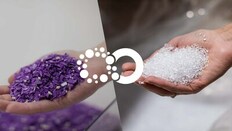- Eastman is investing $1 billion in a molecular recycling facility in Port Jerome, France.
- The facility will recycle 200,000 metric tonnes of polyester waste annually by 2026.
- Eastman has agreements with Citeo, Paprec, and Interzero for feedstock supply.
- Phase 1 of the project will be mechanically complete in 2026, processing 100,000 metric tonnes.

Investment and Facility Details
Eastman is investing $1 billion in a molecular recycling facility in Port Jerome sur Seine, Normandy, France. This facility will be the world's largest material-to-material molecular recycling plant, capable of recycling over 200,000 metric tonnes of hard-to-recycle polyester waste annually by 2026.
Feedstock Agreements
Eastman has secured significant feedstock agreements to support the facility. Citeo, in partnership with Paprec, will provide a substantial amount of French household waste. Additionally, Eastman has an agreement with Interzero for 25,000 metric tonnes of waste, adding to a previous agreement for 20,000 metric tonnes. Another agreement with a leading waste management company adds approximately 30,000 metric tonnes of waste.
Project Phases and Timeline
The project will be executed in two phases. Phase 1 is expected to be mechanically complete in 2026 and will process 100,000 metric tonnes of waste. The phased approach allows for design changes to increase the facility's capacity from the initial estimate of 160,000 metric tonnes to over 200,000 metric tonnes annually.
Recycling Technology
Eastman will use its Polyester Renewal Technology (PRT) to recycle hard-to-recycle plastic waste. This technology breaks down waste into molecular building blocks, which are then reassembled into new material without compromising quality. The process is highly efficient and utilizes renewable energy sources available at the Normandy location, resulting in lower greenhouse gas emissions compared to traditional methods.
Global Expansion
In addition to the French facility, Eastman is investing in two other molecular recycling plants in the U.S., including one in Kingsport, Tennessee, with a combined global investment of approximately $2.25 billion for all three facilities.

